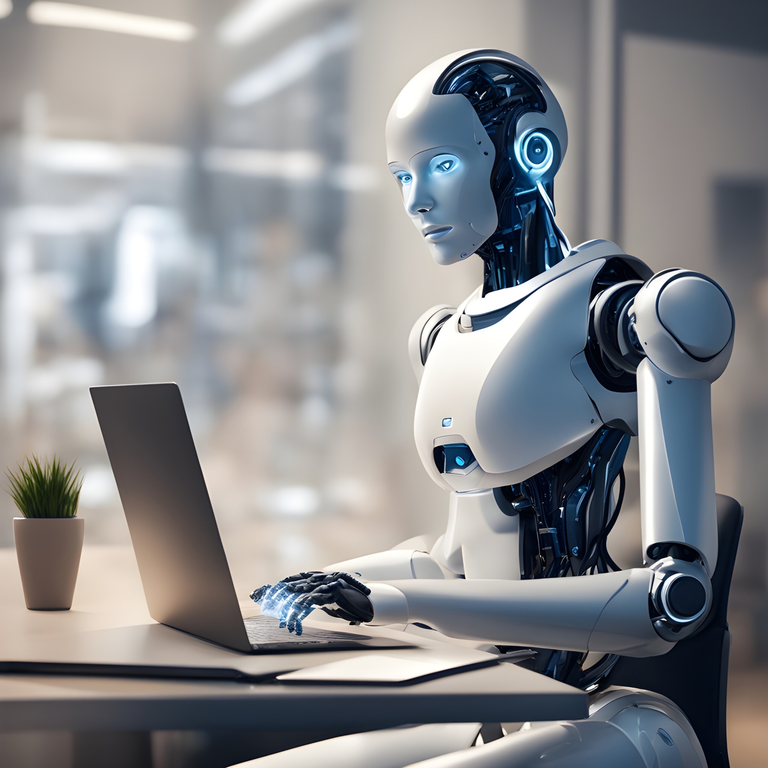Will AI Take My Job?: Understanding the Impact of Artificial Intelligence on Employment

Introduction
In the fast-paced world of technological advancement, the rise of artificial intelligence (AI) has sparked both excitement and apprehension. One of the most pressing concerns among individuals across various industries is whether AI will take their jobs. This question looms large as AI continues to evolve and integrate into numerous aspects of our daily lives. But, before succumbing to fear, it's crucial to delve into the complexities of this issue and explore what the future might hold.
The Fear Factor: Understanding the Concerns
The fear of AI replacing human jobs is not unfounded. With AI's ability to automate repetitive tasks, optimize processes, and even perform complex cognitive functions, it's natural for individuals to worry about their job security. From manufacturing and transportation to finance and healthcare, no industry seems immune to the potential disruptions caused by AI-driven automation.
Historically, technological advancements have led to shifts in the labor market. While some jobs become obsolete, new opportunities emerge, often requiring different skill sets. However, the pace at which AI is advancing raises valid concerns about the potential magnitude and speed of job displacement.
Assessing the Reality: The Complex Interplay of AI and Employment
While AI undoubtedly has the capacity to streamline operations and increase efficiency, its impact on employment is multifaceted. Contrary to the doomsday narrative, AI is not necessarily a job killer; rather, it's a catalyst for job transformation.
In many industries, AI augments human capabilities rather than replacing them entirely. For instance, in healthcare, AI-powered diagnostic tools assist medical professionals in making more accurate diagnoses, but human judgment and empathy remain irreplaceable. Similarly, in manufacturing, AI-driven robots work alongside human workers, enhancing productivity and safety.
Moreover, AI creates entirely new job categories. Roles such as data scientists, AI ethicists, and machine learning engineers are in high demand as organizations strive to harness the power of AI. Additionally, the need for individuals skilled in human-AI collaboration and oversight is becoming increasingly vital.
Embracing Change: Navigating the Future of Work
As AI continues to reshape the labor market, adaptation and lifelong learning are essential for individuals seeking to thrive in the age of automation. Rather than viewing AI as a threat, embracing it as a tool for empowerment and innovation is crucial.
Investing in education and upskilling is paramount. Developing proficiency in areas such as data analysis, programming, and human-centric skills like creativity, critical thinking, and emotional intelligence can significantly enhance employability in an AI-driven economy.
Furthermore, policymakers, businesses, and educators must collaborate to ensure a smooth transition for displaced workers. Initiatives such as reskilling programs, job placement assistance, and policies promoting lifelong learning can mitigate the negative impacts of automation.
Looking Ahead: Building a Collaborative Future
The question, "Will AI take my job?" is undoubtedly a pertinent one, but it's not a definitive prophecy of doom. Instead, it's an opportunity to shape the future of work collaboratively. By embracing the potential of AI while prioritizing human-centric values, we can create a workforce that thrives amidst technological advancement.
As we navigate the complexities of AI's impact on employment, one thing remains clear: the future of work is not predetermined but rather shaped by our collective actions and choices. By fostering a culture of adaptability, innovation, and inclusivity, we can harness the transformative power of AI to create a more equitable and prosperous society.
Conclusion
While AI will undoubtedly disrupt traditional job roles, it also presents unprecedented opportunities for growth and advancement. By fostering a mindset of continuous learning and adaptation, individuals and organizations can navigate the evolving landscape of work with resilience and optimism. Instead of fearing the unknown, let us embrace the possibilities of an AI-enhanced future, where human ingenuity remains at the forefront of innovation.